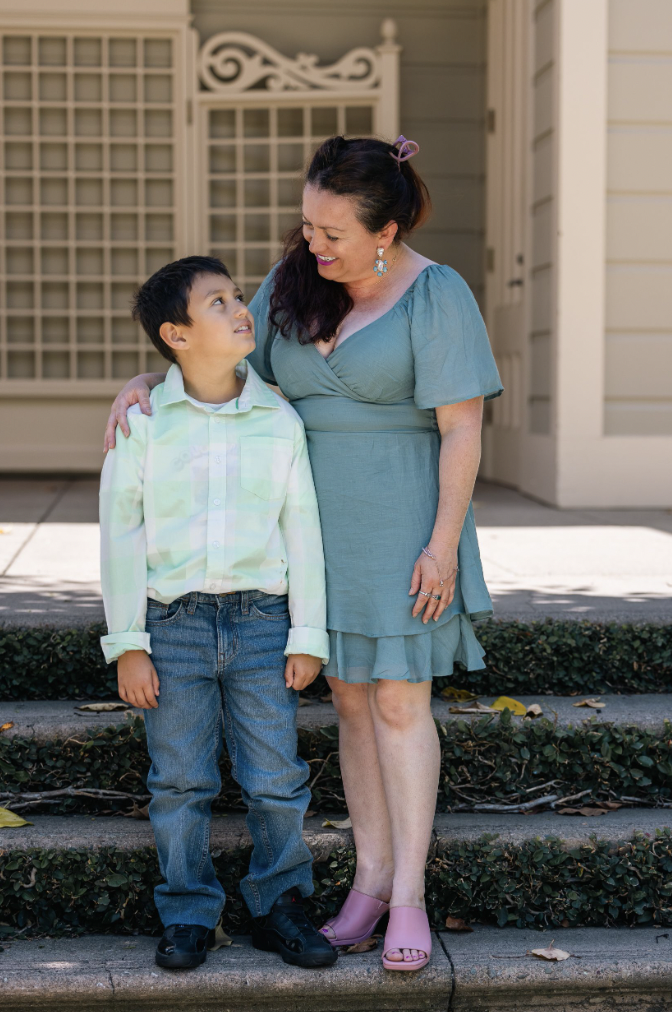The UpTogether Blog


The key to solving poverty – trust
The United States spends billions of dollars a year fighting poverty without moving the needle. Yet we’re seeing intense backlash to one thing that could actually work — guaranteed income.
My organization, UpTogether, has been distributing unconditional cash to families for two decades, including more than $210 million to 200,000 households since 2020. We like to say we “trust and invest” in people because they’re experts in their own lives and know what’s best for their families. Indeed, we have collected thousands of stories of people using these investments along with their own initiative to escape poverty.
Given our experience, it’s frustrating to see states like Texas, Iowa, Arizona and Idaho move to ban publicly-funded guaranteed income initiatives. These movements are fueled by false narratives about families facing poverty.
Anti-guaranteed income folks think the key to ending poverty is controlling people through hyper-surveilling programs that judge every decision they make and every dime they spend. But this is a failed approach that has wasted billions of dollars and hurt the very people the safety net is supposed to help.
Take work requirements. Policymakers have ample evidence that work requirements don’t work to increase economic stability. People in marginalized communities face myriad challenges to gainful employment, including discrimination, inadequate transportation, and lack of access to quality education and child care. Draconian work requirements force individuals into jobs that don’t offer benefits or stable hours, further perpetuating class-based exploitation and social inequality. Coupled with strict time limits on public benefits, many families do not get the economic stability they desperately need, which further compounds their crisis situations, including homelessness.
It is also well-established that unconditional direct cash payments do not lead to a mass exodus from the workforce. The expanded Child Tax Credit in place during the pandemic dramatically reduced child poverty and did not lead to reduced employment. This kind of investment helps people meet basic needs and stabilize their households in order to pursue bigger goals in their lives.
The current welfare system punishes people for getting ahead and keeps them in a cycle of dependance. If a family makes $1 more than allowed, they can lose more in benefits than they earned in increased income. This counterintuitive policy, known as the “benefits cliff,” makes it hard for families to survive, much less thrive.
Trusting and investing in families through direct cash is a better policy. And we have data showing it works.
In Boston, families receiving $583 a month experienced a 43% decrease in psychological distress, compared to a 17% increase among those not receiving payments. In Austin, families receiving $1,000 a month spent didn’t have to worry about how they were going to pay their rent or mortgage. Many parents in our guaranteed income pilots tell us they were able to spend more quality time with their children and could afford to enroll their children in activities and sports.
We need to change our mindset from one that supports giving corporations big tax giveaways and at the same time sees investments in people as a handout with no return.
Critics of guaranteed income believe the growing number of cash transfer experiments are setting the stage for universal basic income (UBI), in which all Americans would be eligible for monthly stipends. We need to be clear about the purpose of guaranteed income, which is not the same as UBI. Guaranteed income is targeted, recurring, unconditional direct cash investments in financially under-resourced and historically marginalized communities.
Poverty, like many contemporary welfare programs, robs people of freedom. Guaranteed income and other direct cash initiatives give freedom back. People don’t need the government telling them what to do, no matter how much money they earn or their station in life. What they need is for us to trust them with direct investments in their families and their futures.

